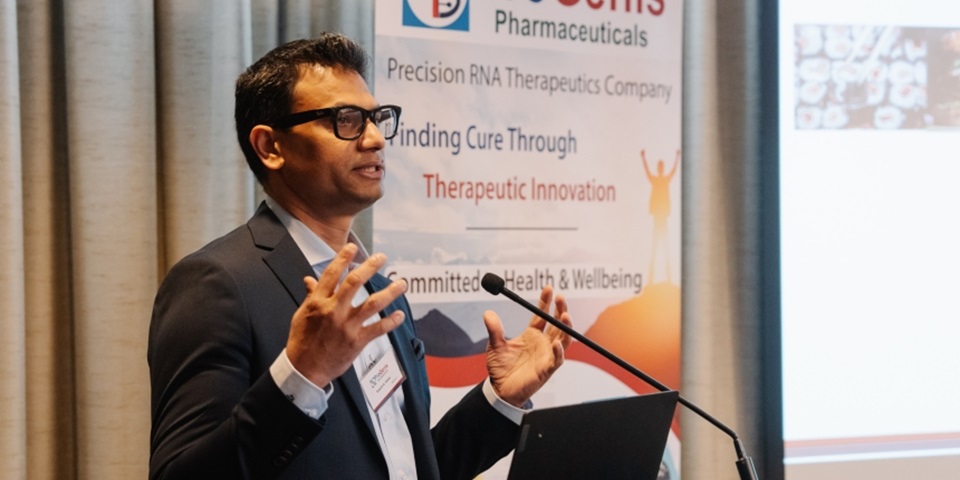News
WA pharma startup to give diabetes and rare diseases a shot in the arm

Cutting edge health research from Murdoch University takes a step closer to the clinic with the launch of ProGenis Pharmaceuticals.
The new biotechnology company, headquartered in Perth, has been established to develop innovative treatments for various inherited and acquired diseases, including type 2 diabetes, multiple sclerosis, Duchenne muscular dystrophy, and Rett syndrome.
Led by Associate Professor Rakesh Veedu, a world-renowned expert in chemical biology and RNA drug design, and Professor Marvin Caruthers, a distinguished American biochemist who revolutionised DNA/RNA manufacturing technology, ProGenis Pharmaceuticals specialises in developing precision RNA therapeutics.
We believe precision medicine has the potential to transform healthcare on a scale equivalent to the way antibiotics transformed the fight against infectious diseases”
Dr Rakesh Veedu
RNA – or ribonucleic acid – is a molecule that carries genetic messages. It has the same basic structure as DNA and is what helps turn genetic information into your body's proteins. The term has become better known in recent times through COVID-19 vaccines.
Pfizer and Moderna vaccines for COVID-19 are good examples of a Messenger RNA (mRNA) vaccine, which instructs cells in your body to make a protein that will trigger an immune response when it encounters the virus.
Dr Veedu says this approach to treating diseases presents a big opportunity for major diseases like diabetes as well as rare diseases, which disproportionately affect children, adolescents and young adults.
“RNA-based medicines offer significant promise for developing precision therapies to treat rare and acquired diseases,” Dr Veedu said.
While rare diseases affect fewer people, they also have a significant impact on individuals and the health system.
In Western Australia, small case numbers of rare diseases present a major burden on hospitals, with the 2% of people with a rare disease accounting for 10.5% of inpatient hospital costs.
He believes that RNA therapeutic molecules with a new type of chemistry developed together with Professor Caruthers at the University of Colorado, called thiomorpholinos (TMOs), can be applied to treat a range of these diseases, as well as type 2 diabetes.
“This chemistry is very effective at producing the RNA therapeutics that can target disease genes at low doses, compared with other chemistries.”
TMOs form the foundation chemistry and core technology platform of ProGenis for developing novel RNA targeting medicines.
Murdoch University Vice Chancellor, Professor Andrew Deeks, said the company presented a compelling avenue for the University’s research to transition to a clinical setting and impact lives.
“Our research is a team effort, crossing traditional discipline boundaries. Much of our inspiration comes from our community and industry-based partnerships,” Professor Deeks said.
Through our collaboration with ProGenis, we have found a partner with aligned priorities, through which we can create positive change in society."
Vice Chancellor, Professor Andrew Deeks
“We see the value in developing strong relationships with commercial entities and innovators and the great mutual benefit of working together.”
A promising TMO drug for type 2 diabetes is currently in preclinical developmental stage, while another is entering preclinical developmental phase for multiple sclerosis and Duchenne muscular dystrophy.
Dr Veedu is part of the Centre for Molecular Medicine and Innovative Therapeutics, a joint research centre between Murdoch University and the Perron Institute.
This research supports the United Nations Sustainable Development Goal 3, to ensure healthy lives and promote well-being for all at all ages.
Learn more about research at the Centre for Molecular Medicine and Innovative Therapeutics.